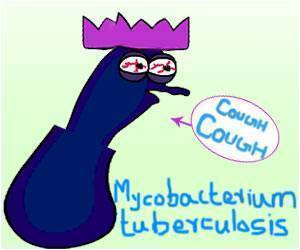Tuberculosis is a form of the disease that cannot be cured with traditional therapies. A group of scientists have discovered potential treatment for the drug-resistant TB.

Lead author Vasu Nair from the University of Georgia said that multi-drug resistant TB is spreading rapidly in many parts of the world and there is a tremendous need for new therapies, and they think their laboratory has developed a strong candidate that disrupts fundamental steps in the bacterium's reproduction process.
The compound, which works by binding to magnesium and specific amino acids found within the bacterium, interrupting the production of RNA, strongly inhibits the growth of the bacterium and renders it incapable of reproducing and spreading infection and shows very low levels of cytotoxicity, which means that it is not harmful to the body, said Nair.
Nair added that all their tests were very favorable. The half-life is a little over 14 hours and all traces of the drug are expected to be cleared through normal bodily functions.
Researchers also discovered through preliminary experiments that it also exhibited strong anti-HIV properties, opening the door for dual therapeutic applications.
Nair concluded that this discovery of dual activity against both retroviruses and drug-resistant gram-positive bacteria is unique and opens a new chapter in drug discovery in this area.
Advertisement









